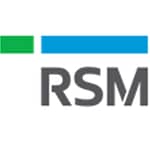The report outline below has been produced by Engage for Success.
The changing contours of fairness research project is a collaboration between the Centre for Performance-led HR, The Work Foundation and the Chartered Institute of Personnel and Development (CIPD)
Those interested in the topic as well as those who ask the following questions should definitely read the full report.
- As an organisation, are you trying to be seen as fair and responsible, trying to find the best way of understanding a way forward, but finding it difficult to do the right thing?
- Do you believe that if employees, consumers and other stakeholders perceive significant unfairness, there will be a price to pay?
- As an employee, or consumer, or citizen, do you feel that organisations and institutions do not seem to understand what fairness really means and looks like?
- As a policy-maker, do you wish that others would understand how complex the issues you are dealing with really are, and what you are trying to achieve?
There is a growing body of evidence suggesting that organisations that treat their employees with fairness, integrity and sensitivity are more likely to find that those employees respond with increased commitment and productivity (Senge 2006). As organisational leaders incorporate insights about justice and fairness in dealing with employees in the global marketplace, their understanding of how employees think will impact organisational effectiveness, profitability and long-term wealth-creation.
Survey findings on fairness from the CIPD Employee Outlook survey
- Staggering 41% answered ‘yes’ to ‘have you encountered anything in the workplace or your professional life that you thought was particularly unfair in the past 12 months’
- 59% believe that rules and agreed procedures are not applied consistently by decision makers, 49% believe rewards are not distributed fairly
- 64% feel there is a lack of consultation among those who will be affected by the implementation of decisions
Mapping the contours of fairness – synthesising six core fariness ‘lenses’
The writers of the report believe that each lens can be used to shed light on a range of issues and contexts faced in modern people management. The report outlines the different situations each gets used, where it matters and why it is important. This report merely outlines the six lenses.
1. Fairness as an organisational justice
Used around the making of management policies such as employee voice and employee engagement, helps formulate key practices such as appraisal and performance management systems.
2. Fairness as the socially just distribution of goods
This notion justifies ‘fairness’ from the field of economics, mainly used in executive pay, bonuses and rewards.
3. Fairness as the principles of outcome
Again from the field of economics, it is used in the discussion of fair pay and bonuses, for example with bankers. Also features in discussion of corporate social responsibility.
4. Fairness as capability
Used in discussion of HR and social policies to deal with issues such as diversity.
5. Fairness as a temporal perspective
This lens is not a way of thinking about justice, as the previous four are, but it raises questions about a particular problem of justice.
6. Fairness as a matter of interpretation
The previous five lenses work on the basis that there are segments of employee, or society, with fairly stable characteristics.
The aim of this research paper is to demonstrate the complexity of issues and the necessity of gaining a better understanding of the different elements of fairness. The full document aims to help align decision making and fair practices.
This summary has been written by Engage for Success, full report can be viewed here.




